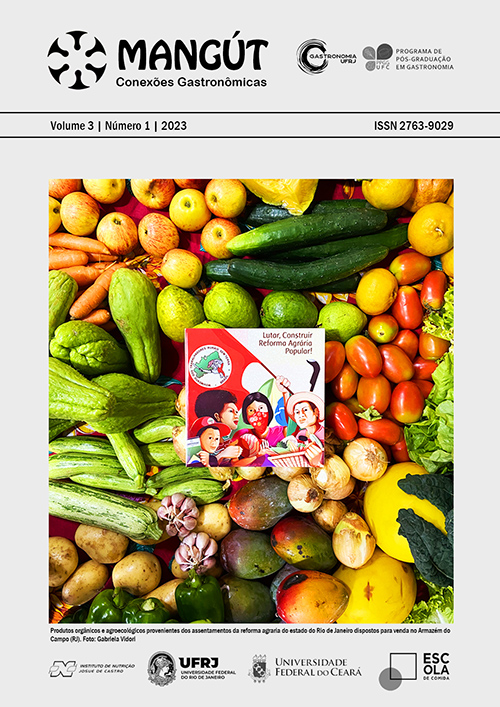The importance of gastronomic research in Minas Gerais cuisine
DOI:
https://doi.org/10.70051/mangt.v3i1.55033Keywords:
Gastronomy, Educational institutions, Cultural identity, Food customs, Research work.Abstract
Minas Gerais cuisine is well-recognized throughout Brazilian territory for its unique flavor and heartwarming food. The state is located in the southeast of Brazil and is considered a region of gastronomic tourism due to its extensive culinary repertoire. These culinary traditions were built throughout a long trajectory from different social, geographic, economic and political conditions, culminating in traditional dishes considered a unique trait from Minas Gerais. Given this scenario, the present study seeks to investigate research opportunities in the state of Minas Gerais, relating to the possibilities that higher education institutions can take advantage of this context of gastronomic diversity. To do this, the researchers used the bibliographic method, relying on authors such as Franzoni (2016), Frieiro (1982) and Paula (2013) in order to provide a theoretical and scientific basis for studies on teaching in gastronomy and Minas Gerais cuisine. From the data collected, it was possible to point out the importance of associating gastronomy with higher education, to improve, value and protect the knowledge surrounding Minas Gerais traditional food.
Downloads
Published
Issue
Section
License
Copyright (c) 2023 Gabriela Ferreira Rodrigues, Aline Gomes Santana, Neide Kazue Sakugawa Shinohara

This work is licensed under a Creative Commons Attribution 4.0 International License.
Autores que publicam nesta revista concordam com os seguintes termos:
- Autores mantém os direitos autorais e concedem à revista o direito de primeira publicação, com o trabalho simultaneamente licenciado sob a Licença Creative Commons Attribution que permite o compartilhamento do trabalho com reconhecimento da autoria e publicação inicial nesta revista.
- Autores têm autorização para assumir contratos adicionais separadamente, para distribuição não-exclusiva da versão do trabalho publicada nesta revista (ex.: publicar em repositório institucional ou como capítulo de livro), com reconhecimento de autoria e publicação inicial nesta revista.
- Autores têm permissão e são estimulados a publicar e distribuir seu trabalho online (ex.: em repositórios institucionais ou na sua página pessoal) a qualquer ponto antes ou durante o processo editorial, já que isso pode gerar alterações produtivas, bem como aumentar o impacto e a citação do trabalho publicado (Veja O Efeito do Acesso Livre).



